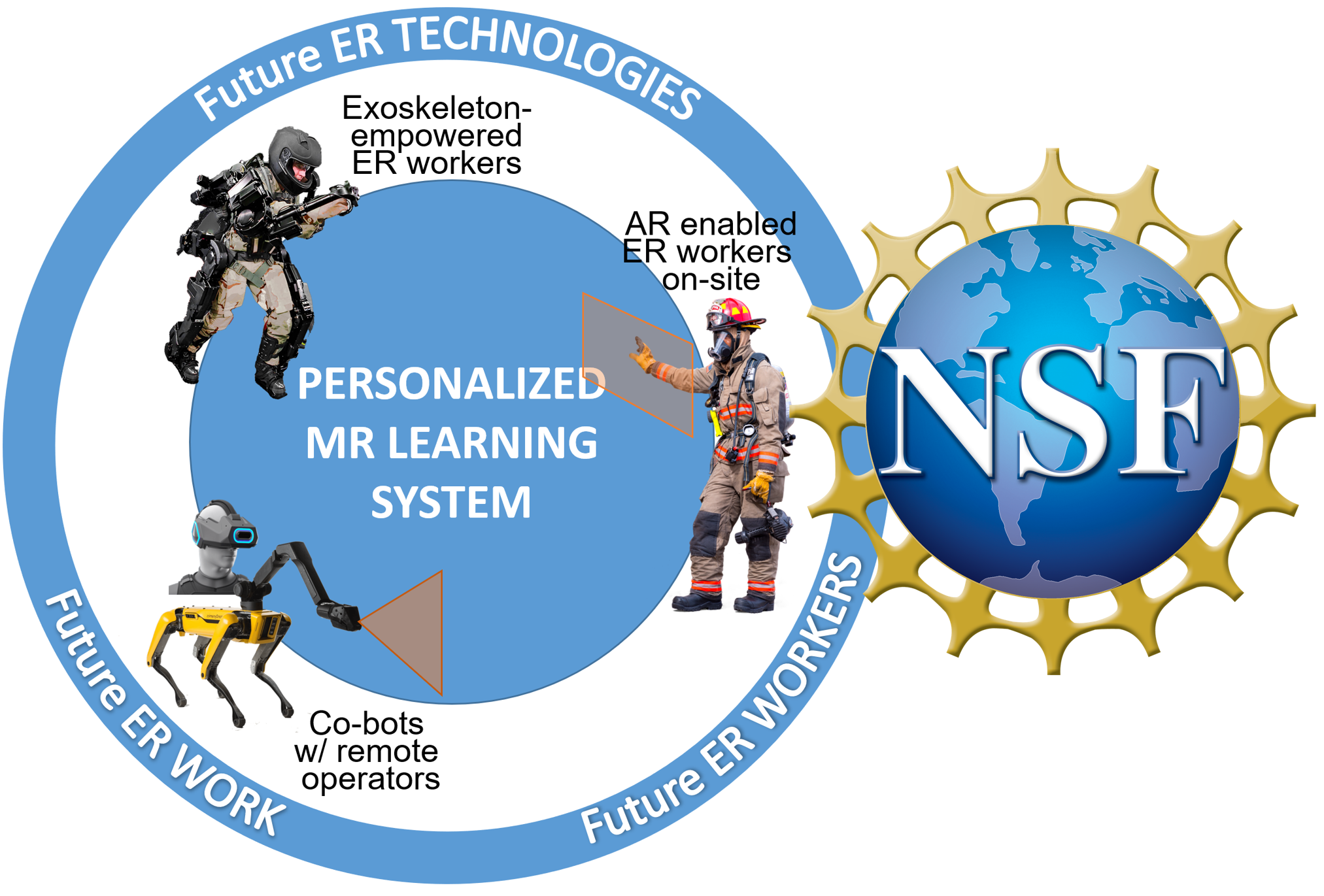Project promo video:
Working with colleagues from Virginia Tech and Texas A&M University, Dr.Du received a new NSF grant titled “Convergence Accelerator Phase I (RAISE): Learning Environments with Advanced Robotics for Next-Generation Emergency Responders (LEARNER)”. This project seeks technology-based solutions that can support and augment the performance and safety of emergency response (ER) personnel. The findings will significantly advance ER operations and training through the development and prototyping of an adaptive, personalized mixed-reality learning platform that enables integrating advanced technologies for human augmentation in ER work, and the creation of principled human-robot team strategies. The project plans to substantially advance the knowledge and state-of-the-art in exoskeleton control, human-robot interaction, and human-computer interaction through use-inspired technology design and development of adaptive human-in-the-loop control to facilitate learning. Furthermore, an opportunity to field these technologies and develop effective learning platforms has significant transformative potential as semi-autonomous ground robots, exoskeletons and AR will enable users to formulate fundamentally new work strategies at the individual and team levels that are only afforded by their newly extended physical and perceptual capabilities. Finally, our work will advance learning by creating a replicable platform that increases the speed for the integration of innovative and emerging technologies for training future worker.
Project team:
Joseph Gabbard (Principal Investigator)
Alexander Leonessa (Co-Principal Investigator)
Jing Du (Co-Principal Investigator)
Divya Srinivasan (Co-Principal Investigator)
Ranjana Mehta (Co-Principal Investigator)
More information about the project can be found at NSF’s project webpage: https://www.nsf.gov/awardsearch/showAward?AWD_ID=1937053&HistoricalAwards=false

